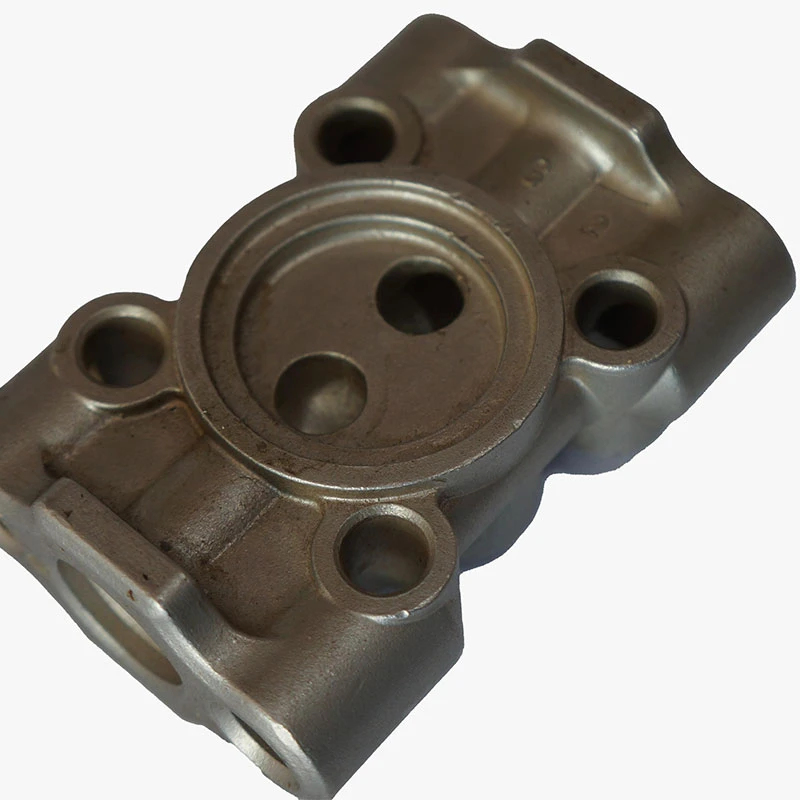precision caster
Precision Casting An Overview of Benefits and Applications
Precision casting is a sophisticated manufacturing process widely used in various industries, including aerospace, automotive, medical devices, and more. This technique is distinguished by its ability to produce intricate shapes and high-dimensional accuracy, making it ideal for parts that require complex geometries and tight tolerances. As technology evolves, the importance of precision casting continues to grow, offering manufacturers an efficient way to meet modern production demands.
Understanding Precision Casting
Precision casting, often referred to as investment casting or lost wax casting, involves creating a detailed mold from a pattern, typically made of wax or a similar material. This mold is then filled with molten metal, which solidifies to form the finished part. Once the metal has cooled and hardened, the mold is removed, revealing a component that closely matches the original design.
One of the fundamental advantages of precision casting lies in its ability to produce parts with exceptional surface finishes and dimensional accuracy. Manufacturers often face challenges when producing intricate parts using traditional casting methods, which may require extensive machining post-casting. Precision casting minimizes this need for secondary processes, resulting in a more efficient production cycle and reduced material waste.
Advantages of Precision Casting
1. Complex Geometries One of the most significant benefits of precision casting is its capability to produce highly complex shapes and features that would be difficult or impossible to achieve with other manufacturing methods. This advantage allows engineers and designers greater freedom when developing new products.
2. High Dimensional Accuracy Precision casting typically achieves tolerances of ±0.1 mm or better. This level of accuracy is crucial in industries such as aerospace, where even the slightest deviation can lead to performance issues or failures.
3. Superior Surface Finish The process results in a superior surface finish compared to conventional methods, often allowing components to meet stringent aesthetic and functional requirements without extensive secondary machining.
4. Material Efficiency Precision casting uses less material compared to traditional methods, leading to cost savings and reduced environmental impact. The process allows for the production of intricate forms with minimal waste, making it a sustainable choice for manufacturers.
precision caster

5. Versatile Material Options This casting technique can accommodate a wide range of metals, including alloys that are difficult to machine. From stainless steel to nickel-based superalloys, precision casting enables the production of components that require high-performance materials.
Applications in Various Industries
The versatility of precision casting has led to its widespread use across multiple sectors.
- Aerospace The aerospace industry demands components that are lightweight yet strong, often requiring complex shapes. Precision casting meets these requirements through its ability to produce intricate structures that can withstand extreme conditions.
- Automotive In the automotive sector, precision casting is used for producing parts such as engine components, gears, and brackets. The process allows for the efficient production of lightweight parts that enhance fuel efficiency without compromising strength.
- Medical Devices The demand for precision in medical devices is paramount. Precision casting produces parts like surgical instruments and implants, where exact dimensions and high-quality finishes are critical to ensure safety and functionality.
- Oil and Gas Components used in oil and gas applications must withstand harsh environments. Precision casting can create robust parts that meet the rigorous demands of this industry, including pumps, valves, and fittings.
Conclusion
Precision casting stands out as a critical manufacturing process in today’s technologically advanced landscape. It provides significant advantages in terms of complex shapes, dimensional accuracy, surface finish, and material efficiency. The continued advancement in casting technologies promises even greater improvements and applications in the future. As industries strive for innovation and efficiency, precision casting will play an essential role in shaping the products of tomorrow, making it an indispensable option for manufacturers seeking to stay competitive in a rapidly evolving market.
-
OEM Sand Cast Pump Valve Fittings - Baoding Hairun Machinery And Equipment Trading Co., Ltd.NewsAug.01,2025
-
Custom OEM Impellers | High Efficiency & PrecisionNewsAug.01,2025
-
OEM Sand Cast Pump Valve Fittings - Baoding Hairun Machinery | Customization, Quality AssuranceNewsAug.01,2025
-
OEM Sand Cast Pump Valve Fittings - Baoding Hairun Machinery And Equipment Trading Co., Ltd.NewsAug.01,2025
-
OEM Sand Cast Pump Valve Fittings - Baoding Hairun Machinery And Equipment Trading Co., Ltd.NewsJul.31,2025
-
OEM Sand Cast Pump Valve Fittings - Baoding Hairun | Precision Engineering, CustomizableNewsJul.30,2025















